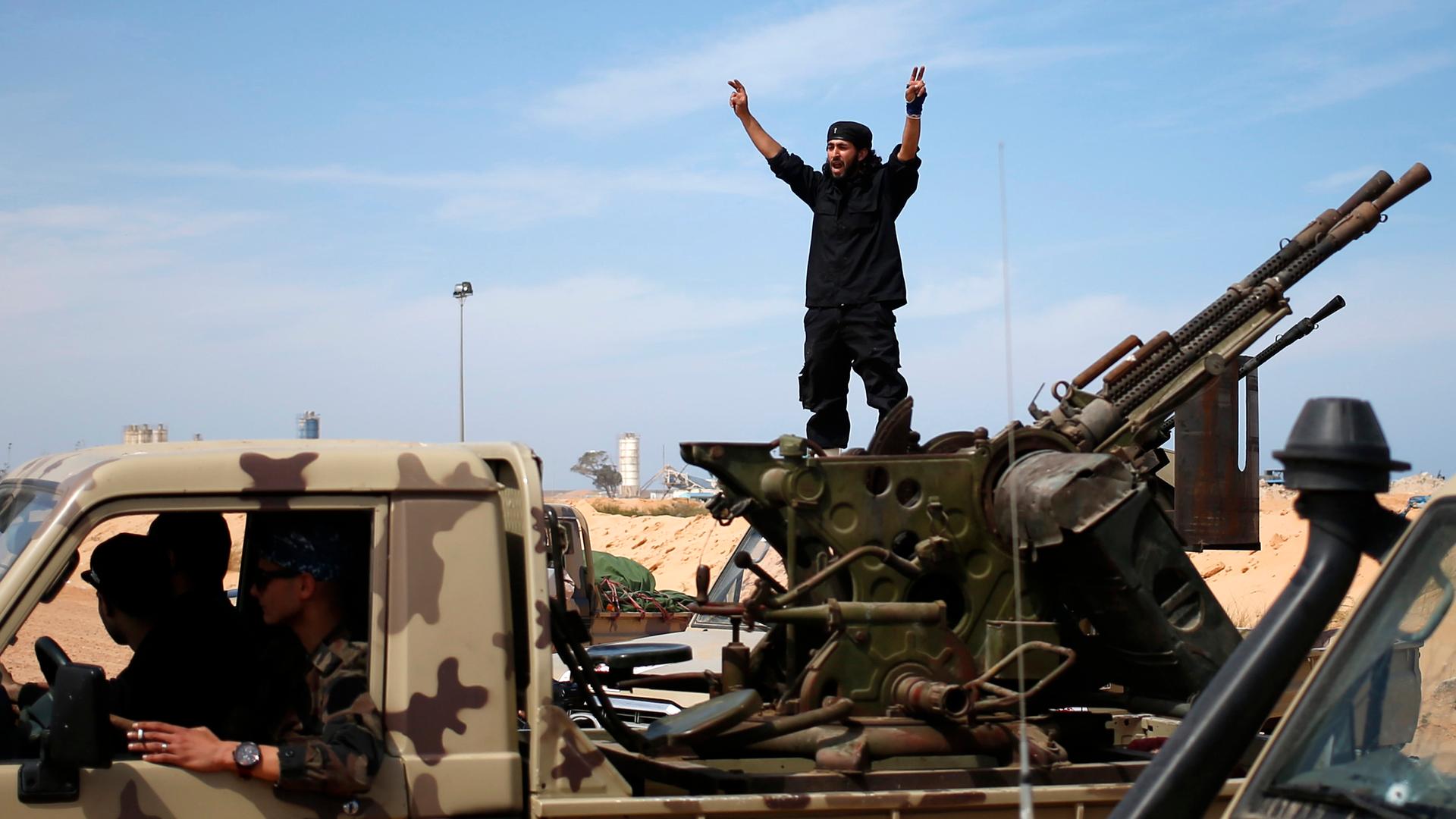A fighter from Misrata shouts to his comrades as they move to fight Islamic State militants near Sirte.
In the wake of the attacks in Paris, more and more people are saying that when it comes to ISIS, it's time to follow the money.
But where does ISIS — often described as the richest terrorist organization — get their cash from?
According to Cam Simpson, a reporter for Bloomburg Business, the answer to that question is oil.
"Oil is not just the lifeblood of the organization, but it’s also the lifeblood of the people who live in the territory that they very brutally control," he says.
Simpson says ISIS gets their money — about $500 million worth of it — at the point of extraction.
“Sometimes it’s just a hosepipe buried in the sand," he says. "They just give crude to the buyers, trucks to guys with jerrycans, you name it."
In fact, even the groups who are fighting ISIS get their oil from them. This includes the Kurds, Turkey and even the Syrian government.
"The Assad government has to run its war machine, it has to run its cities, it needs power," Joshua Landis, the director of the Center for Middle East Studies at Oklahoma University, told PRI's The World last year. It can get its power from ISIS "cheaply" because ISIS controls much of the country's oil fields.
So, it may seem like the logical option would be to go after the members of ISIS who are extracting this oil, right? Cut them off and hit them right in the wallet? Well, Simpson says it's not that easy.
“You can’t really starve this organization without starving the people who live under its power," Simpson says.
Airstrikes today are targeting the crude oil infrastructure, which he says may make some difference, at least for a little while.
But, he says, it's unlikely that the international community will be willing to go all in and do the work to permanently get rid of ISIS in these communities, mostly because of the number of civilian casualties this would entail.
There's also the other complicating factor: oil isn't the only way ISIS makes money. They also make money from selling stolen antiquities, accepting ransom payments and "taxes" they force local policemen and soldiers to pay to continue working. They also own a farm. Simpson, in a piece he wrote, says the non-oil assets could yield $200 million a year.
Besides all of the sources for cash they have, ISIS is unique because they don't spend money on anything other than paying their fighters.
"If you’re vision of the future is to usher in an apocalypse, you don’t need to invest in long-term infrastructure," Simpson says.
